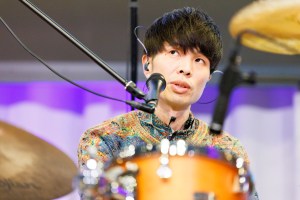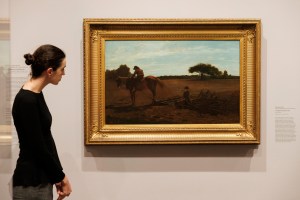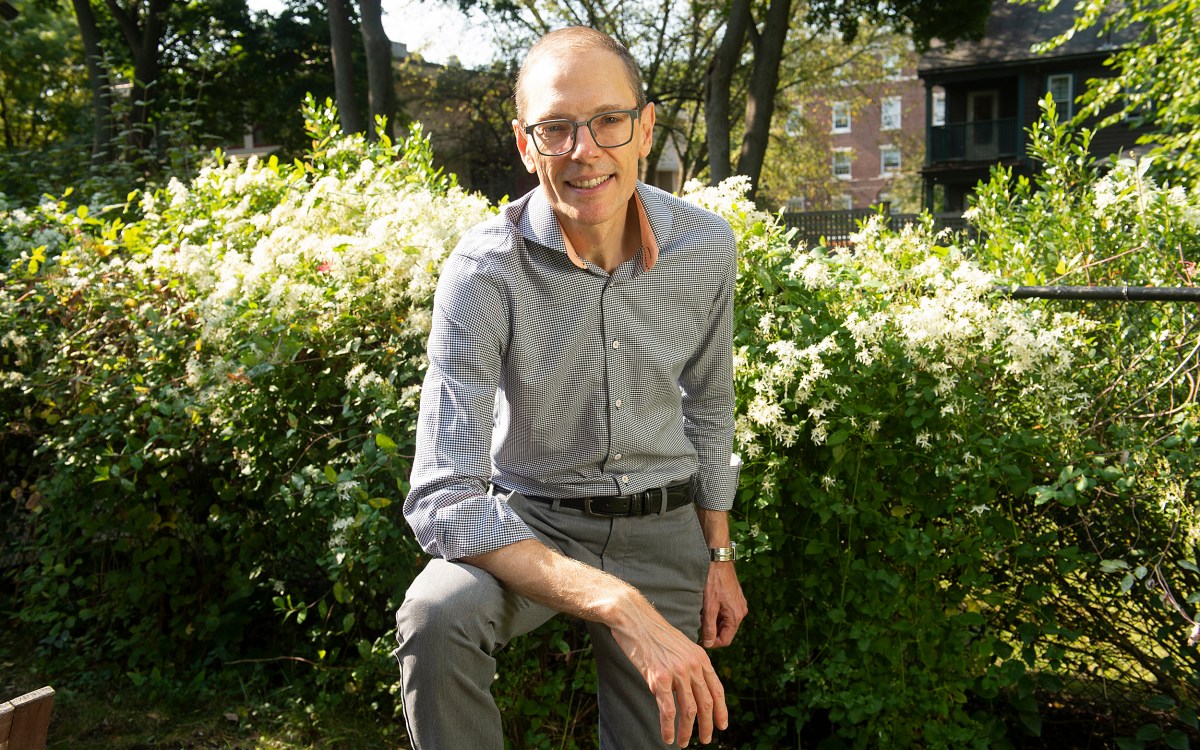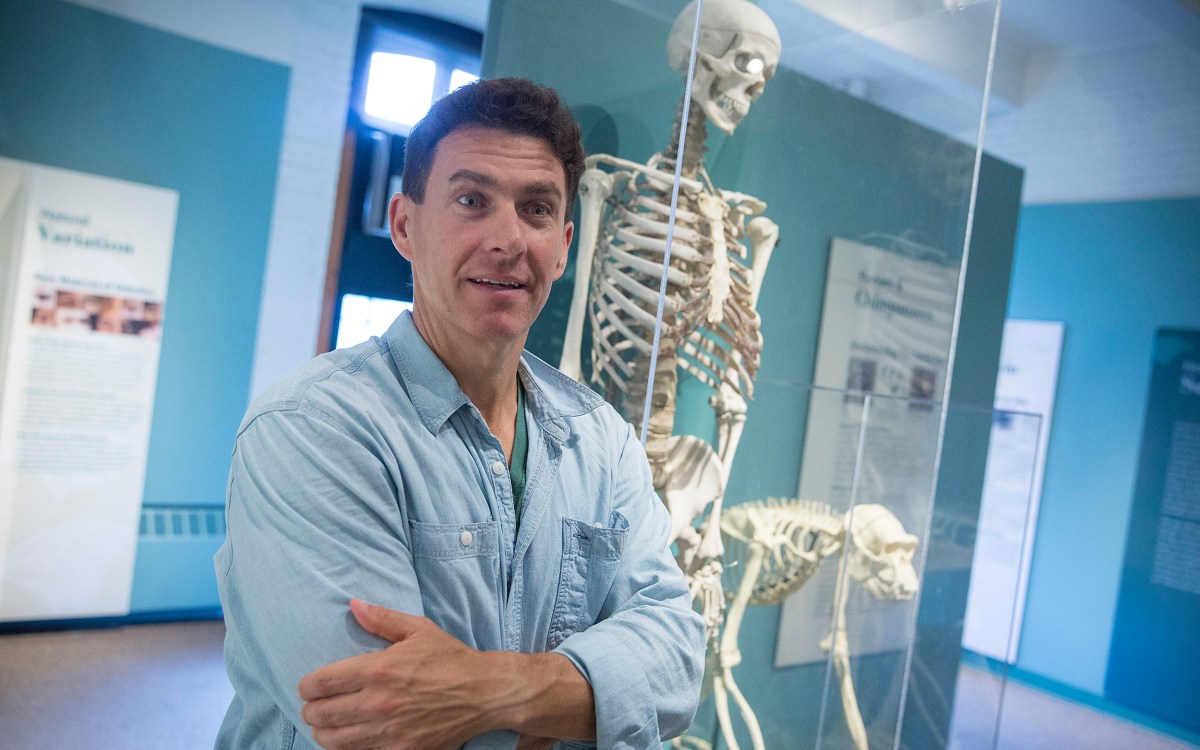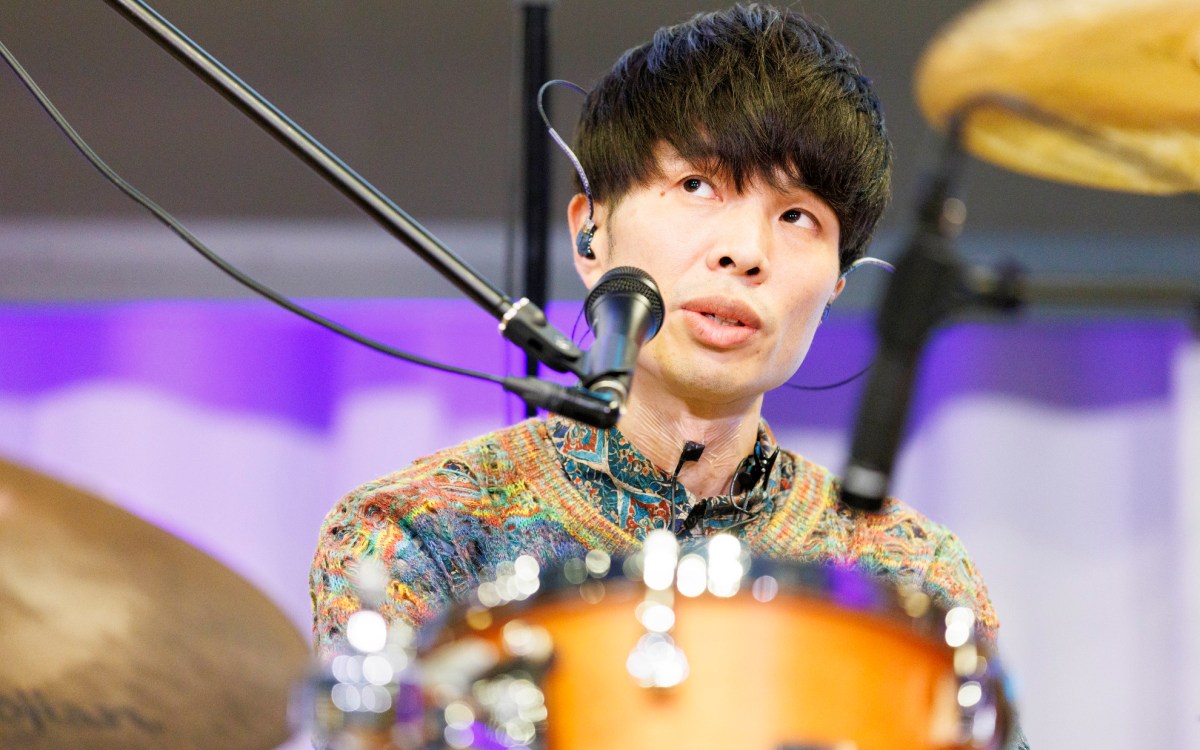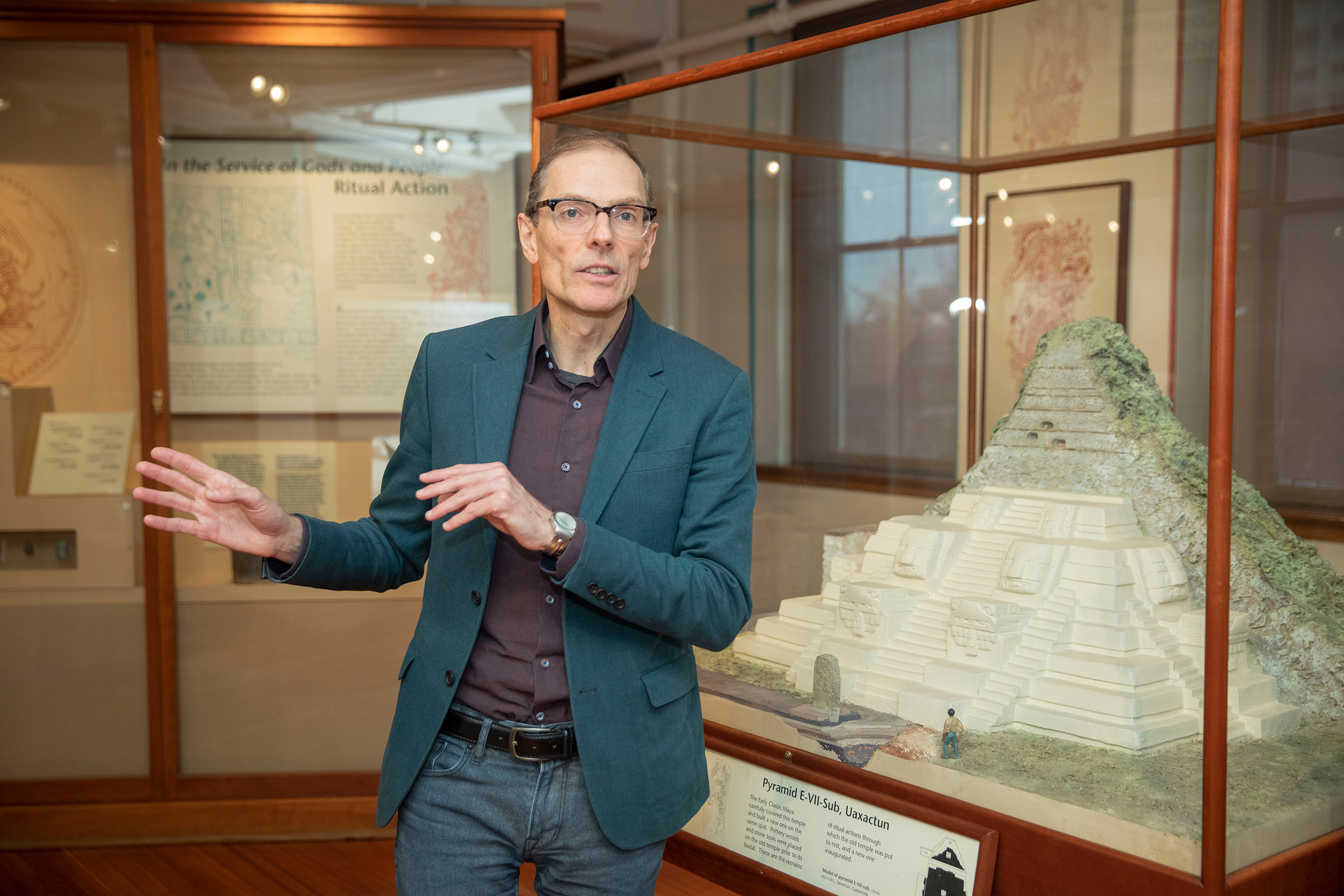
Kris Snibbe/Harvard Staff Photographer
Culture belongs to everyone (and no one)
Scholar and author Martin Puchner goes way back in time to better understand arguments we’re having today
What do the ancient Romans have in common with the Korean rapper behind the 2012 dance hit “Gangnam Style”? How about an Indian king and an Egyptian queen separated by 1,000 years? All have been stewards of culture — creating it and spreading it across time and distance.
In his new book, “Culture: The Story of Us, From Cave Art to K-Pop,” Martin Puchner, the Byron and Anita Wien Professor of Drama and of English and Comparative Literature, guides readers across thousands of years of human history, highlighting turning points in language, art, and music. At the same time, he foregrounds the constancy through time of cultural borrowing — or, as many view it, theft. We talked to him about the genesis of “Culture,” the perils of pride, the future of the humanities, and more. The interview has been edited for clarity and length.
Q&A
Martin Puchner
GAZETTE: What made you want to write “Culture”?
PUCHNER: A few years ago, I was sitting around the dinner table with colleagues after new numbers had come in showing that only 7 percent of the incoming first-year class had expressed an interest in any humanities — a shockingly low number. Even a decade ago, those numbers were in the low 20s. And so, we were sitting around bemoaning the decline of the humanities, as one does these days. In the middle of the conversation, I stopped and realized that even though I’d been teaching arts and humanities for decades, I’d never really asked myself how culture works and how it develops — these fundamental questions.
What is the big arc of culture? Why do humans produce these things? Why do we spend considerable resources on things that don’t have an immediate use? The goal was to give some kind of answer to these questions. And, as I have been doing the past 15 years or so, do that not for just for a specialized audience — because it’s very clear that the decline in the humanities touches not only universities but society at large. We in the humanities need to get better at communicating what’s exciting about the field, what’s important about it.
GAZETTE: You make that case throughout the book in different ways. One question I found myself asking — what’s lost when we turn away from the humanities?
PUCHNER: You could describe the book as a sort of species history — a history of humans as a culture-making species, which is why I begin some 37,000 years ago. What we’re losing is the deep history of this activity. That deep history matters because we talk a lot about culture these days, but if you Google culture, you’re more likely to get a term like culture war, cancel culture, or cultural appropriation. It’s clear we’re living in a very contentious moment when it comes to culture. That’s not a bad thing on the face of it, because it means that people care, but these debates take place very much in a present mindset — what’s happened in the last two decades or the last two centuries, at most. I felt like it was important to bring a deeper sense of cultural history to this debate. I do take some positions, but the idea was not to say this person is right or this person is wrong, but to say, “Let’s not look at just this present cultural world and get caught up in in positions around that. Let’s look at a global history of culture and have that inform how we think and argue.”
“In culture there’s always someone who came before you.”
GAZETTE: Can you walk me through some key moments?
PUCHNER: There are certain takeaways I wanted to highlight. The first is that culture is not natural, cultural objects are not automatically transmitted like DNA to the next generation — we have to store them somewhere or transmit them; we have to evolve storage media and institutions. I started to think about institutions where that transmission happens, and some of the earliest institutions, so to speak, were prehistorical caves like the Chauvet Cave, where people worked for thousands of years, continually. So that that’s one through-line — this focus on storage and institutions. And from caves I go to libraries and museums and universities.
Then there was a takeaway that I would describe as an emphasis on latecomers. I think our culture tends to favor originality and the new, who invented what first. There’s a kind of pride associated with that, and I increasingly felt that that’s misplaced — that in culture there’s always someone who came before you. And something similar is true of borrowing. Almost all episodes in the book have to do with one form of borrowing or another.
The last takeaway has to do with a kind of humility — that so many of the heroes in the book deal with culture of the past, even though that past is very different, a different world with different values and priorities. But they honored that, and even found it interesting to deal with something that was different from them. That includes Arabic translators who were interested in Greek philosophy, even though these Greeks weren’t believers of Islam; Christian scribes of the Middle Ages who were interested in the pagan past, even though these pagans weren’t Christians; and so on and so forth. And this is why I end with the Future Library, where authors agree to write something that won’t be published for 100 years, with the hope that people will be interested in our stuff even though they almost certainly look down on us for all kinds of reasons.
“Studying history instills in me a sense of humility. Which brings me back to Future Library — and the idea that the future is going to have the same problem with us.”
GAZETTE: The book critiques elitist attitudes, especially in the context of colonialism. Thinking about our era, how do we avoid some of those pitfalls when exploring and mixing with other cultures?
PUCHNER: It’s been my experience that if you, especially if you’re a professor, raise your finger and say “Everyone should do this” — people don’t like that. I don’t like that, either. My strategy is to show how culture works, and how these dynamics work, and be compelling about it, and create a certain excitement around that. There are implicit positions that emerge on colonialism, or ethno-nationalism, but also, to a lesser extent, I argue that certain leftist positions that have to do with cultural appropriation sometimes go off in the wrong direction. I’m very sympathetic in many ways, but I also think that being too worried about cultural appropriation can leave everyone impoverished in a certain way.
A few years ago, I started the Theater, Dance & Media program here, and I do have students come to me, future artists and theater-makers, who feel very uncertain about what they are allowed to do — or not. I wanted to unsettle that a little bit with history, which may or may not work.
GAZETTE: You also write that we should be careful about applying present-day standards to the past. How do we reflect on the past without negative judgment?
PUCHNER: I would never say that we should only study the past for its own sake, or that it should be put it in a glass case. Nor do I think that we need to worship the past and everything it stands for. When I am confronted with this distant past, and these figures who themselves confront the distant past, I don’t throw my beliefs overboard, but somehow my convictions and opinions become a little less urgent. You just realize the incredible variety of ways humans have lived and what they’ve thought. And yes, I wouldn’t want to live in all of these places, because I’m a child of my own time, as we all are. But studying history instills in me a sense of humility. Which brings me back to Future Library — and the idea that the future is going to have the same problem with us. And once you put yourself in that great chain of being, so to speak, I think that you find yourself less quick to dismiss something out of hand or consider it not worth engaging at all.

